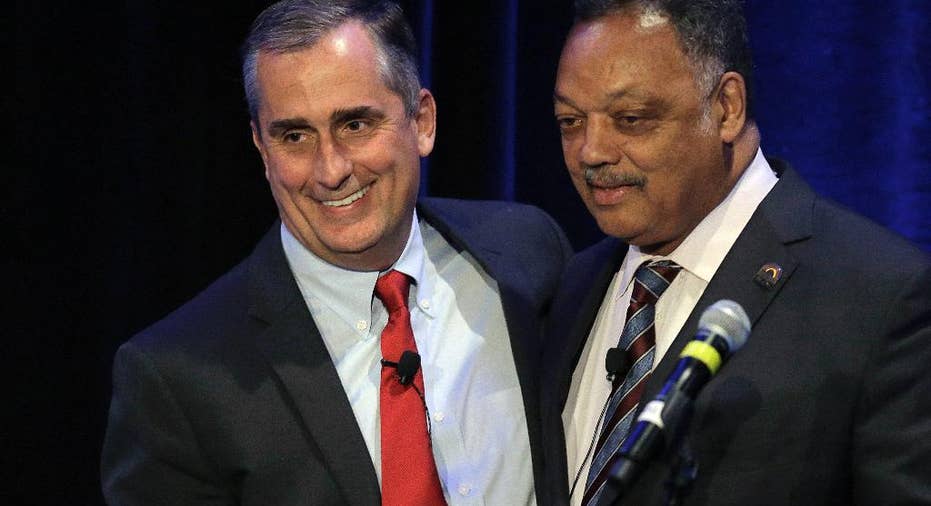Diversity summit renews calls for Silicon Valley to hire more women, black, Hispanic workers

SAN FRANCISCO – Jesse Jackson renewed his call Wednesday for the technology industry to make workforce diversity as high a priority as product innovation.
The civil rights leader spoke at a gathering of corporate executives and activists called to address Silicon Valley's shortage of women, blacks and Hispanics in high-paying jobs.
The San Francisco event underscored Jackson's intention to use his historic ties to Martin Luther King Jr. and the civil rights movement of the 1960s to prod major technology companies change the face of their payrolls.
Harking back to the famous Alabama march led by King in 1965, Jackson told an audience of about 400 people that his crusade for a more inclusive society follows "an unbroken line from Selma to Silicon Valley."
Jackson also cited recent protests over the deaths and abuses of black men arrested by police officers as a sign of the "despair and disenfranchisement" in communities being torn apart by a widening chasm between affluent and financially strapped households.
It's a problem that Jackson believes Silicon Valley can help solve by summoning its brainpower and financial muscle to put more minorities and women to work in the technology industry, one of the fastest growing and best-paying parts of the economy. He describes his mission in Silicon Valley as another stage in a "civil rights symphony."
Jackson's plea has stuck a chord with Intel Corp., which is spending $300 million to diversify its workforce during the next five years. Intel CEO Brian Krzanich appeared at Wednesday's summit to announce that $5 million of that money will finance computer science programs in an Oakland, California, school district where roughly two-thirds of the students are black or Hispanic.
A campaign launched last year by Jackson and his Rainbow Push coalition pressured Google, Facebook, Apple and other major Silicon Valley employers into releasing data that showed an abnormally high percentage of white and Asian men in engineering and executive jobs. The disclosures mortified an industry that thinks of itself as a meritocracy, prompting Intel and several companies to pledge to do more to diversify.
Intel already is doing better in the first four months since setting its goal to have a workforce that mirrors the racial and sexual makeup of the overall population by 2020. Krzanich said 41 percent of the employees that Intel has hired so far this year fell into diversity categories that Intel is trying to increase, up from 30 percent last year.
The Santa Clara, California, company also is studying changes in its workforce each week in an effort to get a better grasp on its diversity problem.
"I am not going to fool you. This is hard work," Krzanich said. "This isn't rocket science. It's harder."
Apple sent one of its African-American executives, Lisa Jackson, to re-iterate its intention to hire more women and minorities because the iPhone maker believes greater diversity will hatch better ideas and products.
"This is about something that is good for business," she said. "This isn't work we do for any other reason."
Jesse Jackson left little doubt that he intends to hold Silicon Valley to its diversity promise.
"Recycled white supremacy is not meritocracy," he said.



















